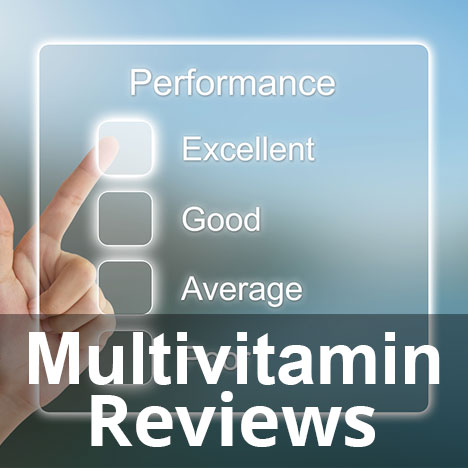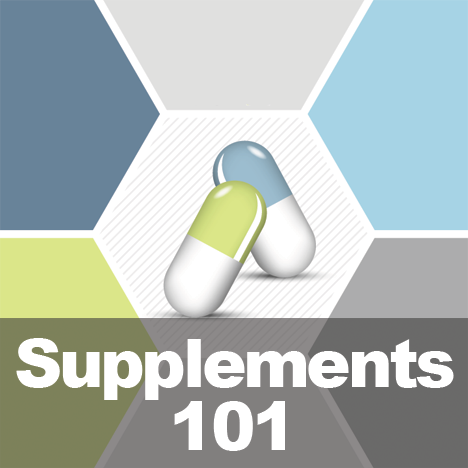Why Take Multivitamins
If you are searching to buy multivitamins online, the question of whether to supplement or not is one that you have probably already asked yourself…and answered. Some of you, however, may be on the fence about supplementing with multivitamins and wondering why take multivitamins if they are going to do no good.
Clearly, here at BestMultivitamins.net we are proponents of multivitamin supplementation. But not just with any multivitamin. There’s a reason why we only seek out the best multivitamins (Read Our Pledge to learn more about how we vet multivitamin brands and resellers). We ourselves began supplementing when we learned the facts and weighed all sides of the “to supplement or not to supplement” debate (Read our About Us page to learn how that came about).
Granted, there are a small handful of studies in circulation purporting that taking multivitamins is not necessary and can actually be detrimental to one’s health. While these studies are inherently flawed (see The Facts section further below), mainstream online press outlets the likes of CNN have unfortunately cited these studies without undertaking the proper due diligence.
Multivitamin Studies
While irresponsible reporting has been a large factor in spreading misinformation about multivitamins, the main source for the confusion is the medical journal, Annals of Internal Medicine, which first published the flawed reports in its December 7, 2014 issue. But if you take a closer look at the fine print (and that which was omitted), it is clear to see why these studies are fallible, and quite frankly, should never have been allowed into the Annals of Internal Medicine in the first place.
Thanks to the research of several renowned doctors, including Dr. Michael Roizen and Dr. Mehmet Oz to, who took it upon themselves to elucidate with the public with the finer print of these studies, it is clear that both methodological and study design flaws were present in these studies. It should be noted that none of the fine-print was cited in the mass media news reports claiming there is no benefit to taking multivitamins.
Methodology Flaws
In regards to methodoloy, both the adherence criteria and quality of supplement were extremely low. In one study that looked at cardiovascular risk, people with a history of heart attack (including smokers), were given a placebo or multivitamin and monitored over the course of 4.5 years for cardiovascular events. However, the adherence criteria only required subjects to adhere to taking their multivitamins two-thirds of the time. In other words, subjects who skipped taking their multivitamins four months out of the year, including smokers, were factored into the study results. Secondly, the methodology of assessing adherence was solely based on recollection of subjects, as opposed to having subjects return unused study product (supplements) which more accurately assesses adherence. As for the adherence rate, a staggering 46% of subjects discontinued use of supplements during the study. Needless to say, achieving lifelong health takes a daily, lifelong commitment, which includes exercise and nutritional supplementation.
And yet, despite these methodology flaws, the study still revealed an 11% decrease in death from heart attack, stroke, coronary revascularization and hospitalization due to angina, and an 18% decrease in cardiovascular death, heart attack and stroke. However, due to absurdly high efficacy thresholds that called for a 25% reduction in cardiovascular events in order for there to be substantial evidence that multivitamins reduce cardiovascular risks, these figures were downplayed.
Low Potency/Quality of Supplementation
Taking a closer look at the specs of the study, even though the non-placebo was defined as a “high-potency” supplement, this was simply not the case. For example, low doses of both Vitamin D and Vitamin B12 (both of which are vastly important for cardiovascular health) were administered. In this study, a mere 100 IU’s of Vitamin D were supplemented, while only 100 mcg’s of Vitamin B 12 were given daily. Comprehensive research and multiple studies have shown that 2,000 IU’s of Vitamin D and 300-600 mcg of B12 are necessary for maintaining optimal cardiovascular health.
Another major oversight was that the given multivitamin contained the alpha tocopherol form of Vitamin E, but not the gamma tocopherol form. While the alpha form of tocopherol has been shown to offer many cardiovascular benefits, including decreased oxidative damage to arteries, a reduction in blood cell clumping, smooth muscle proliferation, vascular tone regulation, it has also been shown to greatly reduce the amount of the gamma form of tocopherol, which has been shown to provide cardiovascular benefits as well. In fact, studies show that patients with advanced cardiovascular disease show normal levels of alpha tocopherol, but low levels of gamma tocopherol.
It’s information and research like this that shows how intricate multivitamin supplementation should be, and why it is paramount to only take a high quality supplement, and yet another reason why Xtend-Life gets our vote as the best multivitamin brand.
The Facts
The fact of the matter is there are thousands of studies published in scientific journals that purport the need (and cite the many benefits) of vitamin supplementation. One in particular, the Physicians Health Study II (the largest multivitamin study to date), found that multivitamin use resulted in an 8% reduction of overall cancers and 12% reduction in cancer death after 11 years of follow-up. The same study showed a 39% reduction in fatal heart attack risk. Another prominent study – Supplementation in Vitamins and Mineral Antioxidants Study – showed a 31% reduction in total cancers for men, which combined with the Physicians Health Study II, brought down a total reduction in cancer incidences after 10 years of follow-up with multivitamin supplementation. Two separate studies from 2013, showed that B6 and Riboflavin supplementation reduced the risk of colorectal cancer in postmenopausal women, while a 2007 study suggested that low levels of selenium are characteristic of a heightened risk of pancreatic cancer. Most clear-cut of all was a 2012 European study of nearly 24,000 participants, in which results tabulated a 48% less chance of cancer deaths and 42% less chance of death from any other health condition.
There is also prominent research citing the cognitive benefits of multivitamin supplementation. In particular, a placebo-controlled study involving Vitamins B6, B12 and Folic Acid supplementation for men and women with mild cognitive impairment, resulted in 29% less brain atrophy and higher cognitive test scores for those given the non-placebo supplement. A double-blind placebo clinical trial showed that healthy individuals given a Vitamin A (retinoic acid) supplement, were less fatigued during prolonged cognitive activities, achieved higher cognitive accuracy and faster completion of mathematical processing tests.
So while for some folks the jury may still be out on whether or not to take multivitamins, our conclusion is that after taking a shrewd and close look at all of the research, the numbers speaks for themselves. Jeffrey Blumberg – a senior nutrition scientist at Tufts University – probably says it best: “Taking multivitamins is not an excuse to not eat healthy. But it is a very prudent thing to take a multivitamin”.
Granted, there is a school of thought that proposes all of the body’s needs can be met with a strict, whole-foods diet. Why take multivitamins if you are already getting your daily required supplements from the food you eat? But the reality is that in today’s industrialized and fast-paced age, this is an impossibility. And this is not just for some people, i.e. those with busy schedules and life demands that make it impossible to plan every meal. The fact is, our modern food supply is severely lacking in the nutritional value that Mother Nature intended and originally set forth.
Nutritional Deficiencies
The Earth’s Soil
It’s clear to see that industrialization and overpopulation have put a toll on the earth of today. It clearly isn’t what it used to be. Take soil. In regards to agriculture, which is dependent on the soil for its nutrient makeup, it is nutritionally inferior to agriculture of just twenty years ago. It’s a fact that broccoli grown in the 1920’s had 80% more mineral makeup than broccoli grown today.
Even the soil of most organic farms is nutritionally deficient as a result of continuous cultivation of high-yield crops. While crop rotation can help to optimize the productivity of soil, i.e. incorporating wheat into crop rotations to oxygenate and vitalize soils, this simply isn’t practiced on a widespread basis, especially on high-yield farms. Even wheat itself contains half as much protein content (6%) than what it did 100 years ago. This is largely due to the fact that 10 times as much wheat is grown on the same square footage of land that it did 100 years ago.
Regarding fertilizers, which are primarily composed of Nitrogen, Potassium and Phosphorous they simply do not contain the scope nor adequate amounts of trace minerals naturally occurring in soil. Next time you are at the garden store, take a look at the fertilizer bags, and you will see three numbers printed on all of them, i.e. 10-10-10. Those three numbers represent the ratio of Nitrogen, Potassium and Phosphorous (in that order). While organically grown produce provides more nutrient content, the sad fact is that it simply isn’t readily available or affordable to everyone. And just because you buy your produce at the farmer’s market, doesn’t mean it’s organic. While many farmers market growers use organic farming methods, the majority do not do so 100% of the time – the main barrier being pesticide and herbicide usage.
Not only do pesticides contaminate soil with metals, they kill microorganisms in the soil that are responsible for synthesizing nutrients and minerals used by crops, resulting in lower nutrient levels. Herbicides, which are used to kill weeds by chelating nutrients out of them, work in the same fashion inside the human body when herbicidal residue is ingested.
Globalization
Buying local produce is beneficial for many reasons. However, outside of one’s local farmer’s market, much of the produce available (even organic produce) is grown many miles and oceans away. The average transit time for non-local produce is one week, which means that in order for the produce to arrive unspoiled or “fresh”, it has to be harvested when it is not fully ripe. This means it is not given the necessary time to ripen and maximize nutrient levels. While produce will ripen after being picked, the moment it is done so, nutrient content begins to subside. It is estimated that over 55% of nutritional content in produce can be lost due to early harvesting and global transport. While this can be mitigated by growing your own produce or shopping your local farmer’s market, the reality is that most of us do not have the means or opportunities to do so.
Modern Living & Stress
Another reality for most of us is stress. Long work hours and fast-paced living is common in this modern age – and needless to say – stress often comes with the territory. Stress not only weakens the immune system (reducing levels of Zinc within minutes), but it also causes excessive sympathetic nervous system activity, which weakens digestion, thereby reducing nutrient absorption. While it would serve everyone to avoid stress and partake in daily meditation, nobody is perfect. And taking a daily multivitamin is a wise, preventive measure.
It is also worth noting that the proliferation of refined, sugary foods greatly impairs digestion as well (it takes 56 molecules of Magnesium to process 1 molecule of sugar). Not only that, processing of foods removes – on average – 75% of all nutrients. Even whole grain foods that are ground into flour, boxed or processed for shipping are deficient of nutrients in their fresh state.
Clearly, there are many factors that can negatively impact nutritional intake in this modern day and age. And while the majority consensus of nutritionists and doctors is that taking multivitamins makes for an effective preventive health insurance policy, every individual should consider their own personal needs when supplementing. If you are one of the few human beings in this world who grows an organic garden that supplies the vast majority of your uncooked, raw food meals and never gets stressed out, then you probably do not need to take multivitamins. If you suffer from food allergies or experience immunity responses when supplementing, then you should consult with a doctor whether or not taking multivitamins poses a risk to your health. Granted, even for those people who have a great number of food allergies and/or immunological conditions, the question isn’t just whether to supplement or not to supplement, but rather, what kind of multivitamin you should be taking. This leads us into the next segment of our Get The Facts section: Whole Food VS Synthetic Multivitamins.
Sources:
Harvard School of Public Health, NPR, Tufts University, Dr. Ben Kim, Mercola, Mayo Clinic




